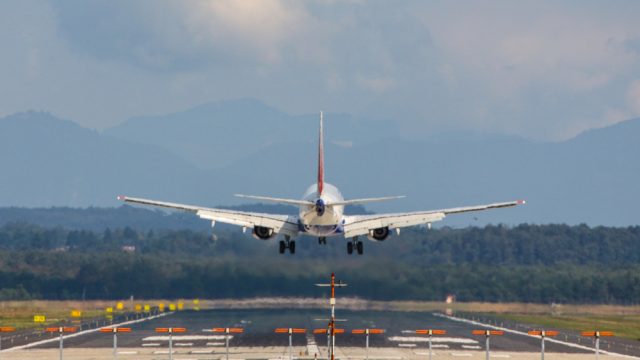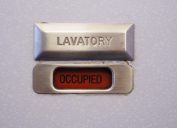Never Forget to Do This After Your Flight Lands, Flight Attendant Warns
Experts say this should be part of your routine after you touch down.
Whether it's a quick regional trip or an international long-haul, stepping off a plane always feels like an incredible relief. Once you've collected your bags and made your way back up the jetway, it can be easy to get caught up in the excitement of your new destination or the routine of settling back in at home. But according to flight attendants, there's one thing that should always be on your post-arrival to-do list. Read on to see what you should never forget to do after your flight lands.
RELATED: Never Forget to Do This Before Boarding, Flight Attendant Warns.
Get some sunlight and spend time in a green space outdoors after you land.

Once you arrive at your destination and settle in, your first instinct may be to grab your camera see the sights. On the other hand, you could also feel exhausted, groggy, and desperate for a cup of coffee. Instead of lying down for a nap, try spending time outdoors to refresh your senses and shake off the effects of hours spent inside a confined space, flight attendants tell lifestyle website The Travel.
If you're staying in a city, your hotel's rooftop, balcony, or outdoor patio can provide the fresh air you need to clear your head. But if you're feeling up for it, a brisk walk to a nearby beach or park can reinvigorate your body—and allow you to soak up some much-needed vitamin D from the sunshine.
Exposure to natural sunlight can help you overcome any jet lag and feel more alert.

If you've spent enough time traveling to need some outdoor refreshment, there's also a good chance your trip has caused you to change time zones. Adjusting your internal clock when you land—or even just making yourself feel more alert—can be a lot easier if you spend some time outdoors in the sun at your destination to help shift your body's circadian rhythm (the scientific term for natural sleep cycles).
"Your body's internal clock is influenced by exposure to sunlight, among other factors," the Mayo Clinic explains. "When you travel across time zones, your body must adjust to a new daylight schedule and reset, allowing you to fall asleep and be awake at the appropriate times."
Research has shown that being proactive about jet lag can have a significant effect. According to one study from the Rush University Medical Center in Chicago, three days of light exposure in the morning could shift participants' sleep cycle rhythms by an average of 2.1 hours, Scientific American reports.
There are different strategies depending on which direction you're traveling.

Even though post-arrival outdoor time can be a game-changing eye-opener for weary travelers, you should still plan accordingly. That's because experts caution the direction you're traveling can make a difference in what time of day is optimal for sunlight exposure—or even avoiding other types of brain-stimulating bright light.
"If you're going east, across fewer than six time zones, you want to expose yourself to morning light at the destination," Steven Brass, MD, a California-based neurologist who specializes in sleep medicine, tells Condé Nast Traveler. "On those trips, if you arrive at night, don't expose yourself to bright light in the evening. When you're going west, across fewer than six time zones, you want afternoon light exposure—which means you hang out outside, as much as possible."
RELATED: For more up-to-date information, sign up for our daily newsletter.
Exercise can also help your body adjust to new time zones or feel refreshed.

If you're used to getting your heart rate up, experts say that getting in a workout after you land can also help you feel refreshed. While using your hotel's fitness center or purchasing a day pass to one nearby is an option, an outdoor activity such as running, brisk walking, tennis, or golf can also go a long way—and allow you to take in both much-needed sunshine and the sights of your new destination in the process.
"Though exercise itself doesn't help jet lag, it does help improve sleep quality and provides energy, two things that suffer when you're jet-lagged," Amy Shapiro, a dietitian and the founder of Real Nutrition, tells Condé Nast Traveler. "Plus, mimicking your same routine from at home helps overall, so if you exercise at 8 a.m. at home, try to exercise at 8 a.m. at your new location."
RELATED: Never Do This Before Takeoff, Flight Attendant Warns.






















